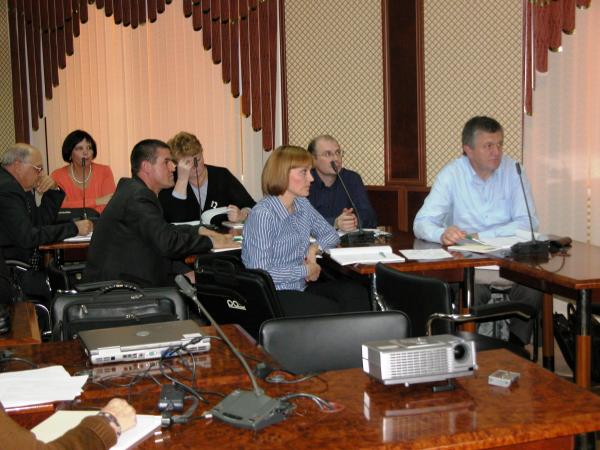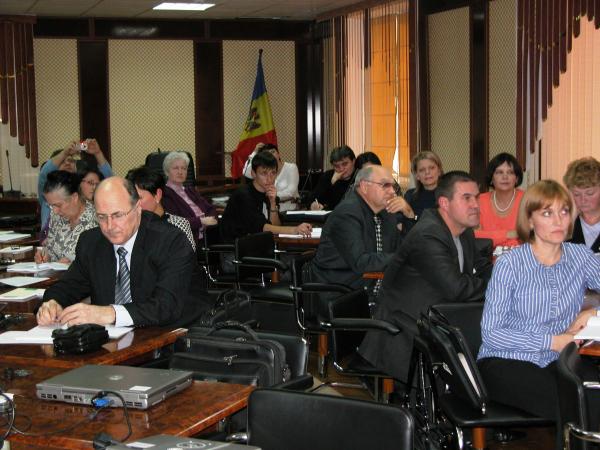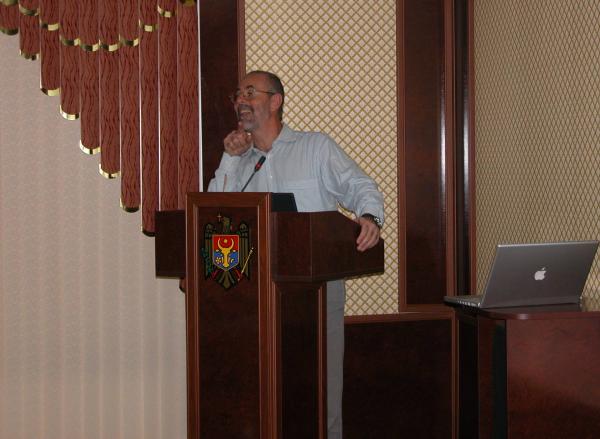Training course on “Management of the multiresistant and with extensive endurance tuberculosis”
The spreading of tuberculosis with resistant germs is a problem of the public health, the prevalence of the multi drug being an indicator of the efficiency of the control problems of tuberculosis. Some peculiarities of the TB MDR control (long length treatment, high prices, low success rates) make from this domain a prior preoccupation in the control activities of tuberculosis.



Now the phenomenon of the medical resistance of the mycobacterium represents a crucial problem in the control programs of this infectious disease for the most countries with a high morbidity of the disease. In the last 10- 15 years, The World Organization of Health (WHO) grants a special attention to the phenomenon of resistance development and established some recommendations (in the DOTS projects) designed to control especially the spreading of the infections with germs resistant at antituberculosis medicines. In this compartment the Republic of Moldova registers the highest values from Europe. The tuberculosis and especially the resistant tuberculosis has special social and economic implications because it affects especially the population at the old maxim professional activity. In these conditions it is required to pay a prior attention to this quite serious health problem. Forthe fast limitation of the infection and of the disease in the population it is focused primarily on regular treatment, directly observed throughout the time required to cure all cases of highlycontagious tuberculosis.In order to the continuous training of the staff involved in carrying out the National Programmeon Prevention and Control of Tuberculosis in the period of November 02- 05 2010 it was organized a training course on "Management of multidrug-resistant tuberculosis with extensive resistance" with the participation of 2 international experts prof. Giovanni Battista Migliori (WHO Collaborating Centre for TB and Lung Diseases, Tradate, Italy) and prof. Christoph Lange (Research Centre Borstel, Germany). The course was attended by representatives from the Ministry of Health, the PMSI "Chiril Draganiuc, the State University of Medicine andPharmacy" N. Testemitanu ", the CHTB Vorniceni, PMSI, SCMFP Chisinau, PMSI, the Balti Municipal Hospital, the prison department, territorial coordinators Hînceşti, Orhei, Ialoveni,Străşeni, Bender. Course aim: to strengthen the capacities for multi-drug resistant tuberculosis control and with extended resistance, the improvement of detection capacity and supervision system of cases of MDR TB. The objective of the course was focused on the continuous development of skills necessary for planning, implementation and evaluation of TB control in the era of MDR TB / XDR, in accordance with the strategy recommended by WHO, the new Stop TB Strategy. They discussed various aspects of MDR TB management: these are interrelated and should be offered to all people "important \" involved in the implementing of the DOTS Plus strategy.Training participants were acquainted with recent data from the global epidemiology of MDR TB, MDR & XDR TB Definition, types of resistance. The development of MDR TB diagnostic principles of MDR & XDR TB cases, treatment of patients with MDR TB & XDR TB, TB Monitoring of MDR & XDR TB. Treatment outcomes, management of ambulatory treatment, adjuvant therapies for the treatment of MDR TB, Management of MDR TB cases and TB, the TB infection control.The course has been welcomed both for young professionals and for doctors with advanced experience, because as working methods were used interactive discussions, exercises, problemsolving, bilateral exchange of experience. The training course was organized by the Center for Health Policy and Studies in the implementation of Global Fund R.8 "The Strengthening of the management of resistant tuberculosis in Moldova”, in agreement with the Ministry of Health, National Programme for Control of Tuberculosis and PMSI the Institute of Phthisiopneumology „Chiril Draganiuc”.





